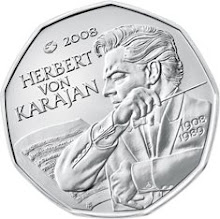The only way to memorize well is to learn Mental Play (MP). In fact, MP is the logical and ultimate goal of all these practice methods that we are discussing because technique alone will not enable you to perform flawlessly, musically, and without getting nervous.
There are at least five basic methods of memorizing; they are: (1) hand memory (audio/tactile), (2) music memory (aural), (3) photographic memory (visual), (4) keyboard memory/mental play (visual/tactile, brain), and (5) theoretical memory (brain). Practically everybody uses a combination of them. Most people rely mainly on one and use the others as supplementary help.
In this method, you learn to play the piano in your mind, away from the piano, complete with accurate fingering and your concept of how you want the music to sound. You can use keyboard memory or photographic memory for MP, but I recommend keyboard memory for beginners because it is more efficient; for advanced players, keyboard memory and photographic memory are the same, since if you can do one, the other follows naturally. Whenever you memorize a small section, close your eyes and see if you can play it in your mind. Once you have memorized an entire piece (HS), you should also be able to play that in your head. This is the time to analyze the structure of the music, how it is organized and how the themes develop as the music progresses. With practice, you will find that it requires only a small investment of time to acquire MP. Best of all, you will also discover that once solid MP is established, your memory is as good as it can get; you will have confidence that you will be able to play without mistakes, blackouts, etc., and will be able to concentrate on music. MP also helps technique; for example, it is much easier to play at a fast speed after you can mentally play it at that speed; very often, the inability to play fast originates in the brain. One benefit of MP is that you can practice it at any time, anywhere, and can greatly increase your effective practice time.
Memory is an associative process. Super memorizers (including some savants) and all concert pianists who can memorize hours of music depend on algorithms with which to associate their memory (whether they know it or not). Musicians are especially fortunate in this regard because music is just such an algorithm. Nonetheless, this "memory trick" of using music as an algorithm to memorize is seldom formally taught to music students; instead, they are often advised to keep repeating "until the music is in the hands", which is one of the worst methods of memory. A large component of your initial memory will be hand memory, which comes from repeated practice. The hand just goes on playing without your really remembering each note. Although we will discuss all the known types of memory below, we will start with analyzing hand memory first because historically, it was frequently thought of as the only and best method of memory although, in reality, it is the least important. "Hand memory" has at least two components: a reflex hand motion that comes from touching the keys and a reflex in the brain from the sound of the piano. Both serve as cues for your hand to move in a pre-programmed way. For simplicity, we will lump them together and call them hand memory. Hand memory is useful because it helps you to memorize at the same time that you practice the piece. In fact, everybody must practice common constructs, such as scales, arpeggios, Alberti accompaniments, etc., from hand memory so that your hands can play them automatically, without having to think about every note. Therefore, when you start to memorize a new piece, there is no need to consciously avoid hand memory. Once acquired, you will never lose hand memory, and we show below how to use it to recover from blackouts.
When we talk about hand memory, we usually mean HT memory. Because hand memory is acquired only after many repetitions, it is one of the most difficult memories to erase or change. This is one of the main reasons for HS(hand separate) practice -- to avoid acquiring incorrect HT habits that will be so difficult to change. HS memory is fundamentally different from HT memory. HS play is simpler and can be controlled directly from the brain. In HT memory, you need some kind of feedback in order to coordinate the hands (and probably the two halves of the brain) to the accuracy needed for music. Therefore, HS practice is the most effective method for avoiding the dependence on hand memory and repetition results in "hand memory" which is a false type of memory that can lead to many problems, such as blackouts( i already have this experience) . With MP, you associate the music in your mind with how you produce it at the piano. It is important to practice MP without playing the piano because you can acquire "sound memory" (just as you can acquire "hand memory") and use the sound of the piano as a crutch for recall, and sound memory can cause the same problems associated with hand memory.
Why are memory and MP so important? They not only solve the practical problems of technique and performance but also advance your musicianship and increase intelligence. Just as you can speed up a computer by adding memory, you can increase your effective intelligence by improving your memory. In fact, one of the first signs of mental deterioration, such as Alzheimer's, is loss of memory. It is now clear that many of those feats of great musicians such as Mozart were simple byproducts of strong MP, and that such skills can be learned.



